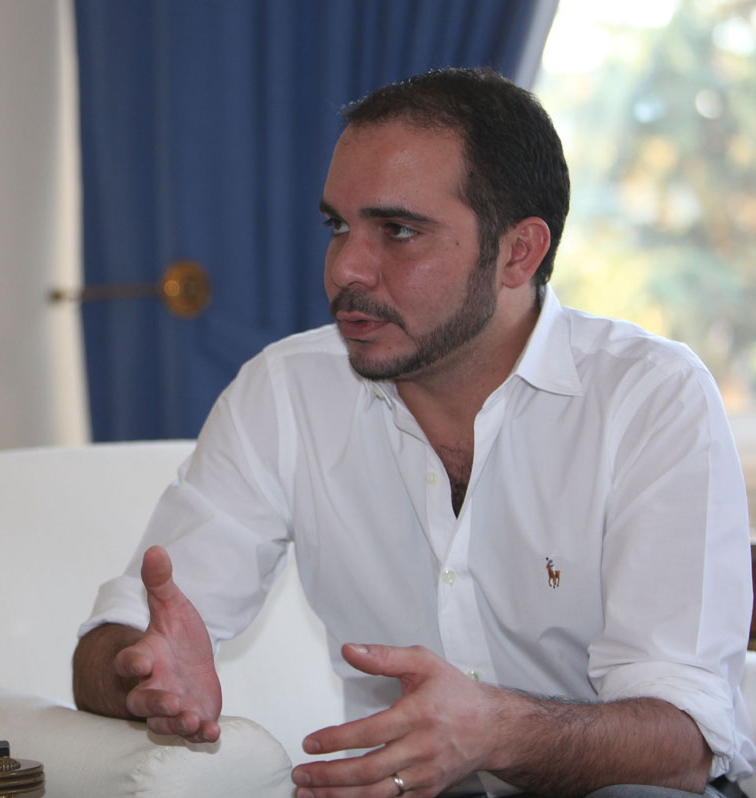
05 Jan PRINCE ALI’S VISION FOR ASIA
FIFA’s choice, last month, of Qatar as host for the 2022 World Cup provided a clear example of a tilt in the balance of power within not only the global but the Asian regional game. Jordan’s Prince Ali bin Al Hussein plans to enhance that shift at the Asian Confederation’s congress.
Prince Ali is challenging South Korea’s Chung Mong-Joon for the role of Asia’s vice-president on the world federation’s executive committee. He does so with an intriguingly progressive vision for the way ahead and a confidence born of a secure foundation in the game.
The 35-year-old son of the late King Hussein and late Queen Alia has been president of his domestic football federation for a decade and holds the same role at the head of the increasingly-influential West Asian Football Federation which he founded.
Now Prince Ali wants to extend his reach and influence right across the wide swathe of the earth which is not only Asia but, in international football confederation terms, stretches another world away on down to Australia.
Too much time, effort and emphasis in the higher reaches of the Asian game, he complains, has been devoted to politics when what the region’s millions of football adherents need is a serious down-to-earth investment in the grassroots of the game.
Asia’s underrated potential was reflected most recently at the 2010 World Cup finals in South Africa when two of the AFC’s four participants (South Korea and Japan) reached the knockout rounds compared with just one (Ghana) of Africa’s six entrants. It goes almost without saying that this imbalance of power on the most visual stage is one which Prince Ali wants to redress.
He believes respect for the Asian game can be developed by following the WAFA model. Prince Ali says: “The work we have down in West Asia has worked out very well in terms of development support and grassroots football, including women’s football – especially with Iran where the women’s team has been able to play in an open stadium.
“Iran is not part of West Asia, formally, for FIFA but they are a very strong football power and outwork together has been going very well which speaks, I think, for this message.”
He adds: “There has been a lot of division within Asian football and I want to bring a unity. It’s a very continent and too much of the time too many people in the game have been left to themselves. I want to change this – and I think people understand my vision.
“We need to communicate more effectively both between ourselves and with the other confederations. I, personally, have good connections to UEFA, to Africa and to the Americas and we can only all gain the more we work together. I see my job, should I win the election, as being one of bridging gaps.”
Prince Ali is careful not to be drawn into too-deep discussions about the controversies which surrounded FIFA’s 2018 and 2022 World Cup awards. But he was delighted by Qatar’s 2022 success and the message that sent to the football world, “that every single member has the right to host the World Cup finals if it can demonstrate it has the capacity.”
His proposals include creating a FIFA Vice-President’s Development Fund to support – “in a totally transparent and very clear way” – the Asian associations in support of his programme’s ‘pillars.’ These he defines as better representation, wider and deeper youth development support, empowering women’s football with a professionalism programme and ‘protecting the game.’
Intriguingly, ‘protecting the game’ includes a pledge to “assess the role of technology in the future of football to ensure a leveling of the playing field.”
Prince Ali’s travels, seeking support, have taken him the length and breadth of the Asian confederation without, he insists, tiring him. Quite the opposite. Instead, he says: “What I’ve seen and heard has only given me the more energy to achieve my goal.”





No Comments